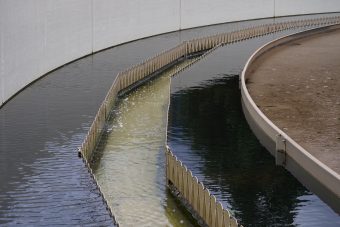
With 481 votes in favour, 79 against and 26 abstentions, Parliament adopted the deal reached with the Council in January 2024 on revising the EU’s water management and urban wastewater treatment standards to better protect public health and the environment.
By 2035, urban wastewater will undergo secondary treatment (i.e., the removal of biodegradable organic matter) before it is discharged into the environment, in all agglomerations of the size of 1,000 population equivalent (p.e., standard measuring unit describing the average pollution released by one person per day) or more. By 2039, tertiary treatment (i.e. the removal of nitrogen and phosphorus) will be applied in all wastewater treatment plants covering 150,000 p.e. and above, and by 2045 in those covering 10.000 p.e. and above. An additional treatment removing a broad spectrum of micro-pollutants (‘quaternary treatment’) will be mandatory for all plants over 150,000 p.e. (and over 10,000 p.e. based on a risk assessment) by 2045.
The monitoring of various public health parameters (such as known viruses and emerging pathogens), chemical pollutants, including so-called “forever chemicals” (per- and polyfluoroalkyl substances or PFAS), microplastics and antimicrobial resistance will be strictly monitored.
The law introduces extended producer responsibility (EPR) for medicinal products for human use and cosmetic products, to cover the costs of quaternary treatment (to remove micro-pollutants from urban wastewater). At least 80 per cent of the costs will be covered by producers, complemented by national financing.
EU countries will be required to promote the reuse of treated wastewater from all urban wastewater treatment plants where appropriate, especially in water-stressed areas.
More:
- EU DIRECTIVE WILL ESTABLISH THE POLLUTER PAYS PRINCIPLE FOR WATER TREATMENT
- NEW EU STANDARDS – WHERE IS THE BEST DRINKING WATER?
- ABB ACQUIRES INNOVATIVE OPTICAL SENSOR COMPANY TO EXPAND SMART WATER MANAGEMENT OFFERING
Quote
Rapporteur Nils Torvalds (Renew, FI) said: “The legislation will significantly improve water management and wastewater treatment standards in Europe, especially with new rules on removing micro-pollutants coming from medicines and personal care products. We are making sure that the impact of the rules on the affordability of medicines will not be disproportionate and that harmful chemicals such as PFAS will be monitored and better dealt with in the future.”
Next steps
Council needs to formally approve the agreement as well before it can enter into force.
Background
In October 2022, the Commission tabled a proposal to revise the urban wastewater treatment directive, aligning it with the EU’s policy objectives on climate action, circular economy and pollution reduction. The legislation is one of the key initiatives under EU’s zero pollution action plan for air, water and soil.
Source: European Parliament



